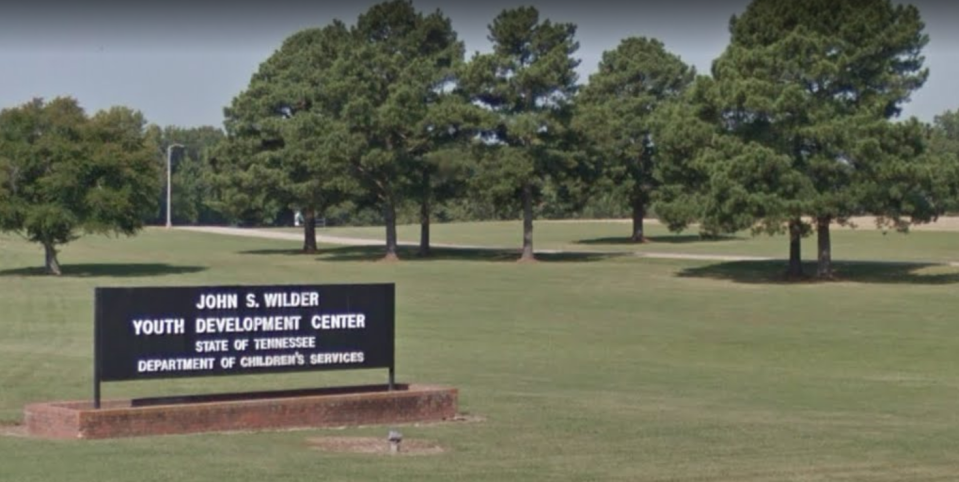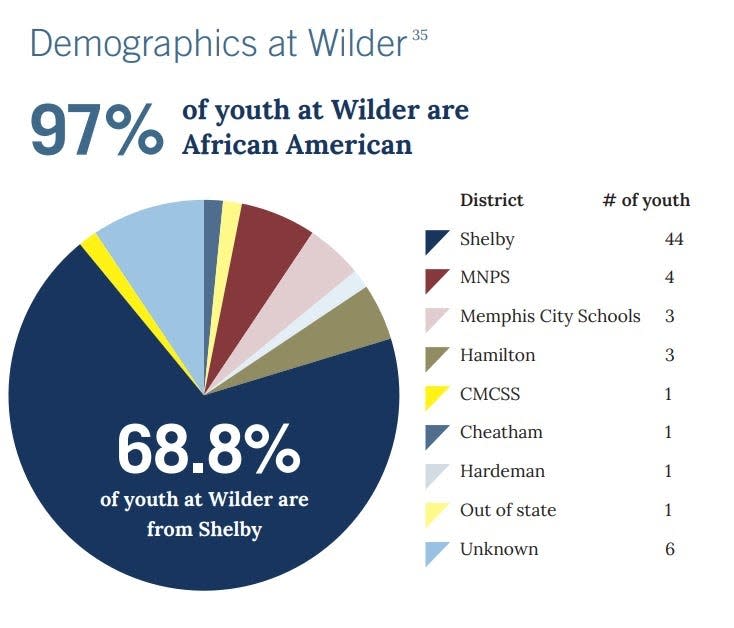As Wilder Center investigation shows, juvenile justice is a crossroads in Tennessee | Opinion
- Oops!Something went wrong.Please try again later.
The State of Tennessee’s juvenile justice system is at a crossroads.
One road continues practices of abuse and neglect and is littered with children who suffer broken bones and spirits and who have long-term educational, medical and mental health issues by the time they return to their communities.
The second path, however, is toward a juvenile justice system that Tennesseans want: one that provides proven, evidence-based rehabilitative services delivered in the community whenever possible and one that immediately stops the abuse and heart-wrenching neglect of children by the Department of Children Services.
More: New report details abuses at Wilder Youth Development Center: What to know
Why no child should have to live in Wilder
Our organizations recently released a report, Designed to Fail, based on a two-year investigation of the John S. Wilder Youth Development Center.

It is called a “youth development center,” but it is not what the name implies and does not help youth develop into thriving adults; rather, it is run like a dangerous prison with few, if any, necessary services to help youth.
The Wilder facility lacks appropriate education programs, mental health support and training in basic life skills. But worse, it is a dangerous place where physical, mental and sexual abuse allegations are not corrected, and youth are living with mold inside walls, rodent infestation and smells of urine and sewage. No child should have to live in a place like Wilder.
Our investigation found that most of the youth interviewed at Wilder have traumatic and painful histories, with mental health issues and other disabilities not properly assessed or diagnosed and left untreated.
Many are being retraumatized by regularly being put into solitary confinement for normal teenage behaviors like spending too much time in the shower.
These youth — who are really still children — are being set up for a lifetime of failure, a lifetime that often starts in a juvenile detention facility then leads to the adult criminal justice system. Wilder is making these children’s lives worse.
Hear more Tennessee Voices: Get the weekly opinion newsletter for insightful and thought provoking columns.

Your state. Your stories. Support more reporting like this.
A subscription gives you unlimited access to stories across Tennessee that make a difference in your life and the lives of those around you. Click here to become a subscriber.
Stop the cycle of preparing kids for incarceration
What is especially tragic is that with the right support systems, appropriate treatment and education, this cycle could be stopped by helping our youth become healthy and productive adults and community members.

Children’s Services should be utilizing community-based alternatives that have a proven track record of helping youth and their families.
Prudent states and counties design systems for success, with an emphasis on both prevention (before youth are involved with the juvenile justice system) and rehabilitation programs (after youth are involved).
This allows youth to become law-abiding adults, while keeping them safe from additional trauma, ultimately ensuring communities are safer places to live.
Sign up for Latino Tennessee Voices newsletter: Read compelling stories for and with the Latino community in Tennessee.
A super majority of Tennesseans want a better system
In 2021, a statewide public opinion survey was conducted with residents across our state commissioned by the Youth First Initiative and released by Tennessee Stand for Children.

The poll found that the people of Tennessee support systemic change to help youth and their families, not an approach designed to fail.
Residents strongly support changes in the juvenile justice system such as those put forward in our report recommendations for the Wilder Center and other facilities around the state.
Tennessee residents overwhelmingly favor a youth justice system that focuses on prevention and rehabilitation (79%), with only 21% favoring a system focusing on punishment and incarceration.
The people of Tennessee agree that rehabilitation plans should include families (85% agree) and that children and youth should return to their families and communities whenever possible (77% agree).
Support among Tennesseans for these policies is based on a belief that most youth in the juvenile justice system are capable of positive change, that the system should provide them with more opportunities to better themselves, and that the best thing for society is to rehabilitate young people so they can become productive citizens.
Sign up for Black Tennessee Voices newsletter: Read compelling columns by Black writers from across Tennessee.
State leaders should focus on fixing the problem
Our hope is that Gov. Bill Lee and the Department of Children’s Services won’t play a political blame game or justify why things are the way they are.

Instead, let’s focus on these children and youth who for whatever reason are now in the care of our state. The Tennessee Legislature has passed some good laws on keeping youth safe, both those in the foster care and juvenile justice systems, in ways that also keep communities safe.
We have an opportunity to provide the youth at Wilder quality mental health treatment and an education resulting in youth having the skills they need to work and become positive, contributing members of their communities when they get out.
Our governor has put a spotlight on rehabilitation in the adult prison system. Let’s not wait until these youth end up there. Let’s work together to help them become healthy and productive citizens of Tennessee.
Lisa Primm is the executive director of Disability Rights Tennessee and Jennifer Rodriguez is the executive director of the Youth Law Center.
This article originally appeared on Nashville Tennessean: Tennessee juvenile justice: Wilder Center shows we are at a crossroads

